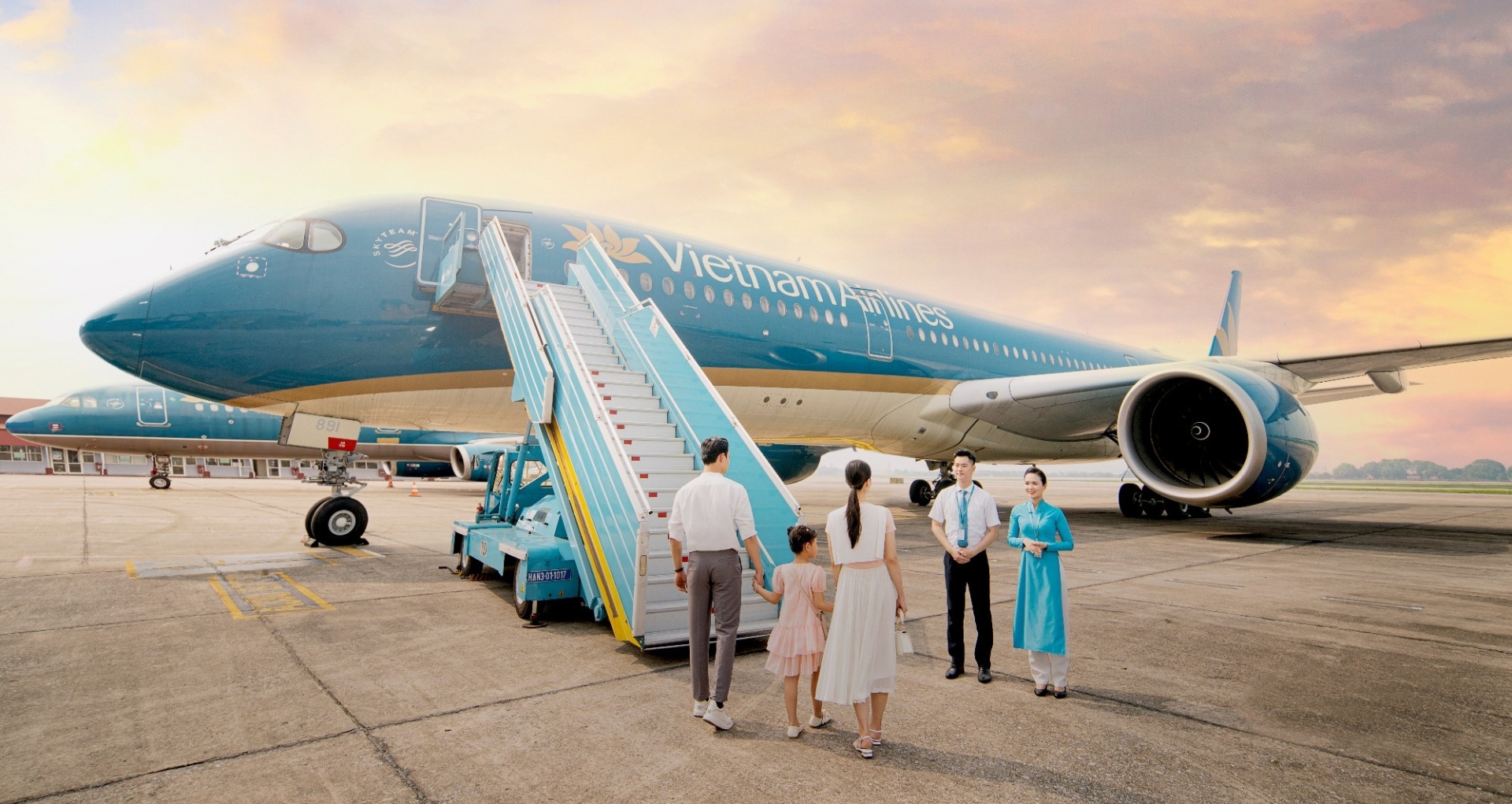Vietnam pushes for transfer of Skypec from Vietnam Airlines to PetroVietnam
 |
The government has specifically tasked CMSC with overseeing the transfer of Skypec from Vietnam Airlines to PetroVietnam, as part of the ongoing restructuring efforts initiated by the two corporations since September 2022.
The proposed transfer of Skypec to PVN aims to support the restructuring process of Vietnam Airlines and enhance PetroVietnam's capabilities in the production and supply chain of petroleum products.
In the event that any issues arise beyond the jurisdiction of CMSC, the committee has been instructed to report to relevant ministries and propose appropriate solutions. Deputy Prime Minister Le Minh Khai is set to receive the report by July 15.
Earlier this year, Vietnam Airlines announced its intention to divest its stake in Skypec, and subsequently invited consulting firms to develop and implement the transfer plan.
This initiative was undertaken as part of the company's independent efforts to address financial difficulties, including negative equity and accumulated losses of billions of VND.
Skypec, which is fully owned by Vietnam Airlines, currently holds a charter capital of approximately $33.3 million (VND800 billion).
With a storage capacity exceeding 220,000 cubic metres, Skypec operates a network of storage facilities at major seaports and airports across Vietnam, serving 18 civil airports nationwide. The company has the capability to support over 214,000 flights annually, with a total fuel consumption exceeding two million tonnes. Before the pandemic, Skypec was considered a valuable asset for Vietnam Airlines.
Within the domestic aviation fuel market, Skypec and Petrolimex Aviation are the two primary suppliers. Additional players include the Tan Son Nhat Petroleum Trading JSC, in which Sasco holds a 38 per cent stake, and Noi Bai Aviation Fuel Services JSC. However, the supply capacity of these two entities is relatively low compared to the larger players mentioned above.
According to the conclusion, the government has urged Vietnam Airlines to comply with competition regulations and review and refine its restructuring plan. The objective is to ensure efficiency, cost reduction, and the prevention of sustained financial losses.
In 2021, Vietnam Airlines experienced a gross loss of approximately $416.7 million but managed to reduce this figure to around $109.4 million last year, thanks to a recovery in revenue to 70 per cent of pre-pandemic levels.
In addition to Vietnam Airlines, the government has also emphasised the need for timely approval of the restructuring plan for corporations and conglomerates within 2021-2025. The investment and business development strategies for these entities are expected to be finalised by July.
Furthermore, the state capital management representative agencies are urged to effectively address and resolve the recommendations put forth by the corporations and conglomerates. Regular quarterly reports on the progress and resolution of challenges are also required to be submitted to the government.
The conclusion statement highlights the importance of a resolute and timely approach by the state capital management agencies, ensuring that they fulfil their responsibilities and duties as the representative bodies of the state capital. This includes effectively addressing the tasks at hand, particularly in relation to the investment and development endeavours of the 19 corporations and conglomerates.
 | UOB Vietnam forms strategic partnership with Vietnam Airlines UOB Vietnam has announced a strategic partnership with Vietnam Airlines, the nation’s national airline and a member of the SkyTeam Alliance. |
What the stars mean:
★ Poor ★ ★ Promising ★★★ Good ★★★★ Very good ★★★★★ Exceptional
Related Contents
Latest News
More News
- Industry-trade sector aims to turn challenges into opportunities in new era (January 22, 2026 | 09:23)
- KoCham and KN Holdings strengthen cooperation on eco-industrial parks (January 21, 2026 | 18:11)
- AMRO forecasts 7.6 per cent GDP growth for Vietnam in 2026 (January 21, 2026 | 11:44)
- Financial sector charts next steps as Party Congress convenes (January 21, 2026 | 09:58)
- Three key dynamics supporting Vietnam’s GDP growth in 2026 (January 20, 2026 | 16:34)
- Carlsberg Vietnam and Grab encourage responsible enjoyment and safer mobility (January 16, 2026 | 19:55)
- Redefining Vietnam’s growth model for the era of innovation (January 16, 2026 | 16:40)
- Nghi Son refinery processes first non-Kuwaiti crude cargo (January 16, 2026 | 16:06)
- Siemens and VSIP announce landmark strategic partnership (January 15, 2026 | 14:48)
- VinFast sets record with 175,099 electric vehicles delivered in Vietnam in 2025 (January 15, 2026 | 14:24)

 Tag:
Tag:



















 Mobile Version
Mobile Version